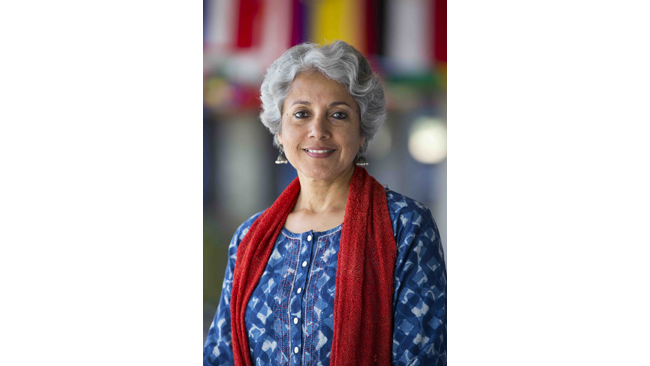
Jaipur, 21 October, 2020.
As a tribute to its visionary founder, JRD Tata, the Population Foundation of India organises the JRD Tata Oration. Speaking at the 15th JRD Tata Memorial Oration from Geneva, streamed by the Population Foundation of India, Dr. Soumya Swaminathan, Chief Scientist, World Health Organization said, “Of the lessons that I have learned over the last nine or ten months, the most important one is the importance of investing in public health and primary healthcare. We see examples of countries where investments in primary healthcare over the past decade or two have paid off. On the contrary, you have high income countries where they’ve been overwhelmed and haven’t been able to put in place some of the mechanisms that have been needed.”
This annual lecture series, instituted in
1990 invites notable international and national speakers to deliver a lecture
focussing on critical issues related to health, population and development.
Previous orations have been delivered by intellectuals, scientists, visionaries
and a few former Prime Ministers, including Mr. IK Gujral, Dr. Nafis Sadik, Mr.
Jamshed J Irani, Dr. Manmohan Singh, Mr. Nitin Desai, Prof Amartya Sen and Dr.
Babatunde Osotimehin.
Mr. Ratan Tata, Chairman Emeritus, Tata Group
said; “The JRD Oration is an occasion that means a lot to me. This pandemic has
disrupted lives worldwide, but as Dr. Soumya Swaminathan has pointed out, it is
an opportunity to learn important lessons and for government, private and
voluntary sectors to come together as one and battle our way out of the woods.
We remain committed to a healthier and more prosperous India.”
Dr. Soumya Swaminathan emphasised the
differential impact of the pandemic on women and children in her oration.
Highlighting the consequences of the Covid-19 on education, violence against
women, reproductive health and services, Dr. Swaminathan’s oration identified
the following key factors that would address the gendered impact.
1. Including violence
against women in the package of essential services
2. Social services for
women employed in the informal sector
3. The importance of sex
and age disaggregated data
4. Importance of universal
health coverage schemes such as Ayushman Bharat.
She underscored the importance of gender
analysis and gender responsive public health policies. Key takeaways from the
powerful oration include:
1. A need to collect
gender disaggregated data, and also a need for
2. Infodemic management,
given the excessive influx of misleading and false information on COVID-19
3. Identifying and
addressing triggers of behaviour change
4. Imaginative use of
technology and empowering our frontline workers, who are the foundation of
India’s public health system
5. And finally, to think
“upstream”, of social determinants of health which impact health and lifespans
much more than merely having access to a health facility.
Dr. Srinath Reddy, a board-member of the
Population Foundation of India said; “Science must light up the path for human
progress in an ecologically sustainable world. Rejecting science will lead to
future failures in averting or attenuating diseases, including pandemics. Dr
Swaminathan gives a clarion call to hold the standard of science aloft as we
march into a healthy future after the victory over COVID. To do so, we must
vanquish not only the virus but also the virulent anti-science movement that
has vitiated thinking and resisted a rational global public health
response.”
Population Foundation of India’s Executive
Director, Ms. Poonam Muttreja, said, “This year’s oration is a special time for
us – It is our 50th anniversary. JRD Tata is among our key founders. We
strongly believe that if our founding fathers were here today, they would be
proud to see the difference Population Foundation of India has made to the
lives of millions of people, particularly girls and women.”